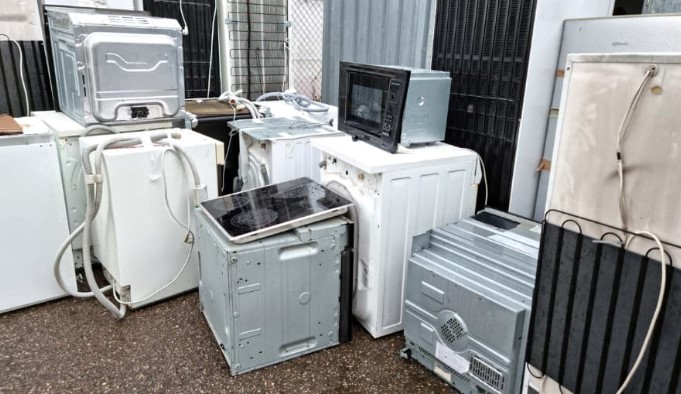What Is Scrap Metal?
Scrap metal is an important component in the recycling industry, contributing significantly to environmental conservation and resource management. We look at the scrap metal metal industry in Australia, exploring its types, sources, recycling processes, and economic and environmental benefits.
Introduction to Scrap Metal
What is Scrap Metal?
Scrap metal refers to discarded metal materials that can be recycled and reprocessed into new products. These metals, which include both ferrous and non-ferrous types, are sourced from various industrial and household items. Scrap metal is a key player in metal recycling, helping to conserve natural resources and reduce greenhouse gas emissions.

Types of Scrap Metal
Ferrous Metals
Ferrous metals are those that contain iron. Common examples include steel and iron. These metals are magnetic, which makes them easy to separate from other types of scrap. The recycling of ferrous metals, such as recycled steel, is widespread due to their abundance and utility in producing new metal products.
Non-Ferrous Metals
Non-ferrous metals are those that do not contain iron. Examples include aluminium, copper, brass, and zinc. These metals are more resistant to corrosion and have higher conductivity. Non-ferrous metals are highly valued in the scrap metal recycling industry due to their diverse applications and higher market value.
Precious Metals
Precious metals like gold and silver also fall under scrap metals. These are typically found in electronic devices and are recycled due to their high value and limited availability.
Sources of Scrap Metal
Industrial Sources
A significant portion of scrap metal comes from industrial sources such as manufacturing and machinery. Factories and plants often discard large quantities of metal as waste during production processes.
Household Items
Common household items, including old cars, appliances, and metal items like cans and utensils, are also significant sources of scrap metal. Scrap metal collectors often gather these items from households to recycle them.
Construction Debris
Construction and demolition sites are rich sources of scrap metal. Metal parts from structures, pipes, and fittings can be collected and recycled.
The Recycling Process
Collection and Sorting
The recycling process begins with the collection of scrap metal from various sources. This is followed by sorting, where metals are separated based on their type. Ferrous metals are often separated using a magnet, as the magnet sticks to them, distinguishing them from non-ferrous types.
Processing and Shredding
Once sorted, the scrap metal is processed. This involves cutting or shredding the metal into smaller pieces to facilitate melting. Shredded metal is easier to handle and melts more uniformly, making the next steps in the process more efficient.
Melting and Purification
The shredded metal is melted in furnaces at high temperatures. During this stage, impurities are removed, and the metal’s chemical properties are refined to meet specific standards. This process is energy-intensive but crucial for producing new metals.
Solidification and Formation
The purified metal is then solidified and formed into ingots, sheets, or other shapes, depending on its intended use. This recycled metal can then be used to manufacture new products, giving the discarded metal a new lease on life.
Economic and Environmental Benefits
Economic Impact
Scrap metal recycling has a significant economic impact. It creates jobs in collection, processing, and manufacturing. Scrap metal dealers and recycling facilities play a crucial role in this industry, often paying cash for scrap to encourage collection.
Environmental Conservation
Recycling scrap metal conserves natural resources by reducing the need to mine and process virgin metal. This process also reduces greenhouse gas emissions and water pollution, making it environmentally friendly. Recycling one ton of steel, for instance, saves 1,115 kilograms of iron ore, 625 kilograms of coal, and 53 kilograms of limestone.
Energy Efficiency
Recycling metal is significantly more energy-efficient than producing new metal from raw materials. For example, recycling aluminium saves up to 95% of the energy required to make the same amount of aluminium from raw materials. This significantly reduces the energy required in the production process.
Scrap Metal Industry
Overview of the Industry
The scrap metal industry in Australia and worldwide, is an important part of the global economy. It includes various players, from scrap yards and scrap dealers to large-scale metal processing plants. The industry is regulated to ensure safe and environmentally sound practices.
Market Trends and Regulations
Market trends in the scrap metal industry are influenced by global demand for metals, technological advancements, and regulatory policies. Governments worldwide are implementing stricter regulations to ensure recycling processes are environmentally friendly and efficient.
How to Start a Scrap Metal Recycling Business
Practical Steps
Starting a scrap metal recycling business involves several steps:
- Research: Understand the market and the types of metals you plan to recycle.
- Legal Requirements: Ensure compliance with local regulations and obtain necessary permits.
- Setup: Establish a location for your business, equipped with the necessary tools and machinery for processing scrap metal.
- Network: Build relationships with scrap metal collectors, scrap metal dealers, and recycling facilities.
- Marketing: Promote your business to attract suppliers and buyers.
Tips for Success
- Focus on high-value metals like copper and precious metals.
- Ensure efficient sorting and processing to maximize profits.
- Stay informed about market trends and regulations.
Scrap metal is more than just waste; it is a valuable resource that plays a critical role in recycling and environmental conservation. By understanding the types, sources, and recycling processes of scrap metal, and recognizing its economic and environmental benefits, we can appreciate its significance in creating a sustainable future. Whether you are a scrap metal collector, a business owner, or an environmentally conscious individual, recycling scrap metal is a practice that benefits us all.
